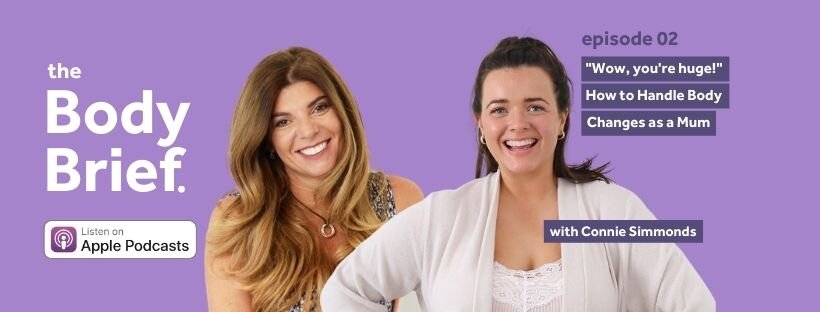Postpartum Hair Loss: Why It Happens And What You Can Do
Ever overheard a pregnant friend talking about how great her hair looks and feels? Well, changes in hair quality are just one of the many side effects of pregnancy–and for the most part, it's a very positive side effect! It's all to do with pregnancy hormones and the increase in estrogen in your body (a hair-friendly hormone). Estrogen keeps hairs in their growth phase for longer and delays them from moving into their shedding phase–which means fuller, thicker, and glossier locks for you.
So it can come as quite a shock once you're postpartum to find that your big, bouncy hair is no more and is now thinning on a daily basis. And on top of the other postpartum body changes women have to deal with, it's no surprise that many of us find it alarming (and a knock to our already lower self esteem and body confidence).
Following the birth of her first child, celebrity Millie Macintosh experienced hair loss and said, “It’s something that’s really affected me since having Sienna, and I found it really difficult,”. Khloe Kardashian also recently admitted to experiencing hair loss, stating on Instagram "After [I stopped breastfeeding], my hair was really thinning. It was falling out a lot..."
So you're not alone: even celebrities experience this condition. There is no denying that postpartum hair shedding can be a stressful experience at an already stressful time—but rest assured that it is completely normal, and any hairs you lose will grow back.
So what causes it?
After you give birth, or stop breastfeeding, your high estrogen levels revert back to normal. The hairs that were being kept in their growth phase now move into their shedding phase. They rest for several weeks, and then after about 3 months, they fall out. This is why you might shed a large number of strands within a short period of time.
Most women notice more hairs in their hairbrush or in the shower drain and sometimes on their pillow or clothes. This is a very normal occurrence so rest assured, it is just your body's natural way of adjusting to the changing hormone levels. Some women don't notice the shedding, but do notice the regrowth of baby hairs that start sprouting often at the front.
How long will it last?
Hair shedding can occur from around 3 months postpartum and should slow down around 6 months postpartum. If you find that it doesn't subside, there may be another underlying issue, and we suggest you speak with your doctor. Do remember that pregnancy, having a newborn, and breastfeeding all take their toll on your body and you must be patient while it resets itself.
What can you do?
While the likes of Khloe Kardashian, who claims taking collagen supplements helped fix her hair loss, and Millie Mackintosh, who says a particular range of hair products helped her, we want to remind you that postpartum hair shedding is a natural process. If your hair thinning out is not necessarily worrying you, then you don’t need to do anything to treat it.
The bottom line? Unfortunately, nothing has been shown to prevent or slow postpartum hair loss. If your hair loss is bothering you, here are a few tips on what you can try to make your hair appear fuller and healthier.
5 Tips For Healthier Hair
1. Styling
You may be tempted to over-style your hair in order to mask thinning patches–but resist the urge to reach for the blow dryer! Styling your hair with heat can actually make it look thinner, and the heat will cause even more damage.
Don't brush too hard, especially when hair is wet, as this can cause your hair to fall out in bigger clumps (try a wide-tooth comb). Avoid tight braids, weaves or using rollers. If regrowth 'baby' hairs are bothering you, then try changing your parting to hide them, or aim for a softer style which incorporates them as opposed to a 'pulled back' style which will highlight them.
2. Eat well
Focus on eating a healthy diet rich in a wide variety of fruits, vegetables, and healthy proteins and fats. It is suggested that there are some foods that improve hair health such a dark leafy greens (for the iron and vitamin C), sweet potatoes and carrots (for the beta carotene), eggs (for the vitamin D), and fish (for omega-3s and magnesium). Fruits and vegetables, which contain flavonoids and antioxidants, may provide protection for the hair follicles and encourage hair growth.
3. Supplement
Taking vitamins shouldn’t be a substitute for a varied diet, but they can help boost your nutrition (especially when you’re a busy new mom). While no specific vitamins have been shown to affect hair loss, they are important for overall health. It is often recommended to continue your prenatal vitamins after your baby is born, especially if you are breast-feeding.
4. Hair products
While there is no evidence that special shampoos, hair treatments, or serums actually work for preventing hair loss, they may add volume or gloss to give a more lustrous look. At the very least, they will provide you with some much needed time for self care–and we could all use a little more of that! Find a shampoo that smells and feels great, and stick with it.
5. Relax
When your body confidence is low and you feel frustrated with your appearance, take a moment to remind yourself of what your body has achieved. Be kind to yourself, be kind to your body and don't rush this postpartum journey. Hormone-related hair loss is nothing to be concerned about, and it generally resolves within less than six months. You won’t experience permanent hair loss as a result.
Stay strong, mama. Many good hair days are ahead of you!


